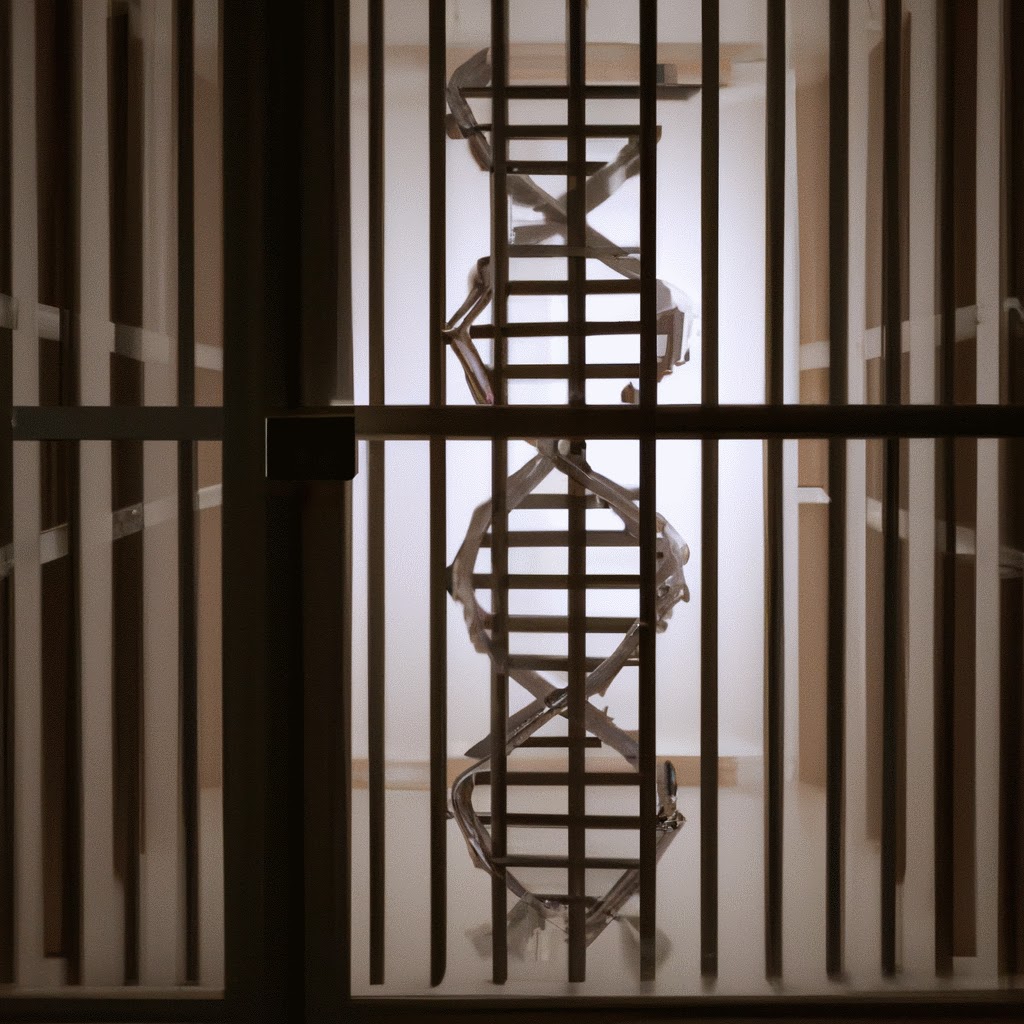Can’t we all just agree 8 billion people is silly? Think about how much of it is just completely redundant. The main focus really should be massive population reduction.
Edit: Also, no, I don’t mean killing off anyone, just reducing birth rates will do fine. We know even just a simple high school education reduces birth rates.
This is the core argument to eco-fascism.
Reducing birthrates is not genocide. As long as the population continues to increase, human life will be more and more devalued as we continue to choose quantity over quality of life because of a DNA delusion.
It literally is genocide, by definition. I know you think you are correct and moral, just like everyone else that ends up thinking stuff like this, but you’re not. You need serious psychiatric help as soon possible.
What a call. The poor fucker just blew themselves up out the front of a fertility clinic.
Wait, what?
Holy fuck
Who gets to have kids?
The poor? The blacks? The Jews?
Forcibly reducing birthrights is absolutely genocide. Unless you are talking solely of reducing birth rates within your own ethnic group…I wouldn’t call Chinas “one-child” policy genocide, per se, but it absolutely paved the way for systemic infanticide. And that’s not really significantly better.
Definitely not poor people. I think requiring a license to have children would not be a bad idea. I would not acknowledge reproduction as a human right, but instead as a form of rape.
I am also not bothered by infanticide as long as it is done humanely, and assuming both parents do not want the child.
That is a lie.
Eating the rich is by far the most eco-friendly approach as it can dramatically reduce greenhouse gas emissions.
I haven’t clicked through, but I bet they meant “producing meat.”
What about soy derivates being used as estrogens by the body suppressing testosterone. Plus to keep soy fields you have to spray more pesticides than everything else.
In fact, almost 80% of the world’s soybean crop is fed to livestock, especially for beef, chicken, egg and dairy production (milk, cheeses, butter, yogurt, etc).
https://wwf.panda.org/discover/our_focus/food_practice/sustainable_production/soy/
No effects of soy/isoflavones on testosterone or estrogen levels in men were noted.(conclusion of 38 clinical studies)
https://www.sciencedirect.com/science/article/pii/S0890623820302926 :(
So fake.
im a vegan with a soy allergy. not seeing the correlation
Sorry for replying only now. Do you know what soy does to pollutants present in the terrain used to cultivate it? “Grok says”
"Soil Contamination: The intensive use of agrochemicals can lead to the accumulation of toxic residues in the soil. While soybeans require fewer fertilizers due to their nitrogen-fixing ability, herbicides are applied to 98% of U.S. soybean fields, and fungicides and insecticides are used on 22% and 20% of fields, respectively. These chemicals can degrade soil health over time and contribute to pollutant buildup. https://www.newrootsinstitute.org/articles/soy-farms https://www.researchgate.net/publication/258110341_Land_and_water_requirements_for_soybean_cultivation_in_Brazil_environmental_consequences_of_food_production_and_trade
Heavy Metal Accumulation: Soybeans are bioaccumulators, meaning they can uptake heavy metals like cadmium, lead, or arsenic from contaminated soil, water, or fertilizers. These metals can accumulate in the soybean grain, potentially entering the food chain. This property is sometimes exploited for bioremediation (cleaning contaminated soils), but it also means soy grown on polluted terrain may concentrate these contaminants.
Heavy Metals in Soy and Their Relevance to Allergies Heavy Metal Uptake by Soybeans: Soybeans are bioaccumulators, capable of absorbing heavy metals like cadmium (Cd), lead (Pb), arsenic (As), and mercury (Hg) from contaminated soils, water, or fertilizers. For example, studies have shown soybeans can accumulate cadmium from phosphate fertilizers or polluted irrigation water, with concentrations varying based on soil conditions.
These metals can end up in soy-based foods (e.g., tofu, soy milk, or animal feed), potentially entering the human food chain.
Allergic Reactions and Heavy Metals: Direct Allergic Potential: Heavy metals themselves are not common allergens, but they can act as haptens—small molecules that bind to proteins in the body, potentially triggering immune responses. For instance, nickel and cobalt are known to cause contact dermatitis in sensitive individuals, though this is less relevant for ingested metals in soy.
Soy Allergens and Metal Interactions: Soy is one of the top eight food allergens, with proteins like Gly m 5 and Gly m 6 triggering reactions in sensitive individuals. There’s no direct evidence that heavy metals in soy exacerbate these allergic reactions, but metals can cause oxidative stress or inflammation, potentially amplifying immune responses in predisposed individuals. For example, cadmium exposure has been linked to increased inflammation, which could theoretically worsen allergic symptoms, though specific studies on soy are lacking.
Environmental Exposure: Heavy metals in soil or water from soy cultivation runoff (e.g., in Brazil’s Cerrado or U.S. Midwest) can contaminate local ecosystems, leading to inhalation or skin exposure in nearby communities. Chronic low-level exposure to metals like lead or arsenic may sensitize immune systems, potentially increasing susceptibility to allergies, though this is speculative and not well-studied in the context of soy specifically.
“Grok” say so.
so the scientific articles that someone else linked are fake but groks word is gospel ?
Nah Corporations and industries creates 1000x more greenhouse gases than meat and agriculture.
And who supports these corporations and industries by buying their shit?
“Companies have customers and therefore they have no responsibility to climate change whatsoever. They don’t have to manage their waste, they can dump recyclables into the landfill, and it’s the customers fault!”
Fuck off with this shit.
So you think there is some perfect way to manage waste? Because if you can understand that’s not the case, then you can understand that the more people like YOU support these companies, the more waste there will be. This really is not complicated. I know the average person is adamant about not taking any responsibility and shifting it onto politicians and corporations, but that’s the kind of retarded thinking that got us to 8 billion redundant people.
OK, but what if instead of going vegan, I just don’t have kids. Because adding more people to the world also creates more greenhouse gasses.
This crucially important caveat they snuck in there:
“Prof Scarborough said: “Cherry-picking data on high-impact, plant-based food or low-impact meat can obscure the clear relationship between animal-based foods and the environment.”
…which is an interesting way of saying that lines get blurry depending on the type of meat diet people had and/or the quantity vs the type of plant-based diet people had.
Takeaway from the article shouldn’t be meat=bad and vegan=good - the takeaway should be that meat can be an environmentally responsible part of a reasonable diet if done right and that it’s also possible for vegan diets to be more environmentally irresponsible.
If I source my beef or lamb from low-impact producers, could they have a lower footprint than plant-based alternatives? The evidence suggests, no: plant-based foods emit fewer greenhouse gases than meat and dairy, regardless of how they are produced.
[…]
Plant-based protein sources – tofu, beans, peas and nuts – have the lowest carbon footprint. This is certainly true when you compare average emissions. But it’s still true when you compare the extremes: there’s not much overlap in emissions between the worst producers of plant proteins, and the best producers of meat and dairy.
https://ourworldindata.org/less-meat-or-sustainable-meat
Plant-based foods have a significantly smaller footprint on the environment than animal-based foods. Even the least sustainable vegetables and cereals cause less environmental harm than the lowest impact meat and dairy products [9].
That’s both absolutely true and a massive distraction from the point. An environmentally friendly diet that includes meat is going to involve sustainable hunting not factory farming. In comparison an environmentally friendly vegan diet is staples of meat replacements and not trying to get fancy with it. It’s shit like beans instead of meat, tofu and tempeh when you feel fancy. It means rejecting substitutes that are too environmentally costly such as agave nectar as a sweetener (you should probably use beet or cane based sweetener instead).
So in short eat vegan like a poor vegan not like a rich person who thinks veganism is trendy




